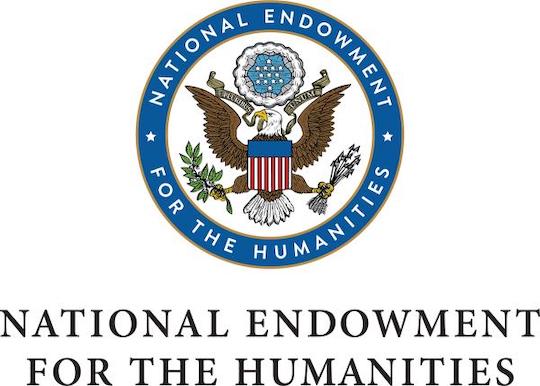Rice University research project honored with National Endowment for the Humanities grants
A Rice University musicologist and history professor are among the recipients of 2023 grants from the National Endowment for the Humanities (NEH) for their research projects on televised opera and tracking historical slave trading voyages.
Danielle Ward-Griffin , an assistant professor of musicology in the Shepherd School of Music, and Daniel Domingues , an associate professor of history in the School of Humanities, were awarded two of 204 grants totalling $28.1 million .
Ward-Griffin’s fellowship will support the completion of her forthcoming book, “Televising Opera: Broadcasting and Performance in Anglo-American Culture (1945-75),” which is under contract to be published by Oxford University Press as part of its Music/Media series.
“I’m very honored to have received an NEH fellowship for my book project,” Ward-Griffin said. “The NEH fellowships are incredibly valuable, as they provide scholars with time during which they focus exclusively on research and writing.”
The book specifically examines English-language opera on TV in the U.S., U.K. and Canada from 1945-75. Ward-Griffin said she is delighted that her research on the topic has been recognized.
“Television broadcasting has often been seen as detrimental to opera — and definitely subsidiary to live performance,” she said. “But my project challenges the idea that media technology threatens live performance and instead shows how experiments on the screen frequently crossed over to the stage and informed broader operatic culture.”
Ward-Griffin said her research is particularly significant today, as the COVID-19 pandemic has fueled a resurgence of interest in broadcasting opera, whether livestreaming from the stage or creating specially designed digital operas.
“My book project contributes to debates about the role of live performance in the digital age by showing how, historically, broadcasting has worked to reinvigorate live performance and broaden access in periods of crisis for the performing arts,” she said.
Domingues’ fellowship is the second he has received for his work on SlaveVoyages, a collaborative digital initiative that compiles and makes public records of the largest slave trades in history. This year’s grant will focus on the creation of a database of voyages of ships carrying enslaved people across the Indian Ocean and maritime Asia for the SlaveVoyages website.
SlaveVoyages was originally created in 2008 to host a database of the well-known trans-Atlantic slave trade. In 2019, it was updated and expanded to include voyages between ports within the Americas.
“We saw, then, an opportunity to continue the expansion of the project’s geographic coverage to include other areas of the world,” Domingues said. “While significant attention has been paid to the trans-Atlantic and intra-American slave trades, not as much has been paid to their predecessor. The traffic across the Indian Ocean and Asia began as early as the eighth century. Estimates suggest that it carried as many people as the trans-Atlantic trade over a much longer period. Indeed, the Indian Ocean traffic continued well into the 20th century, and traces of it persist to present times.”
In 2021, a group of six institutions formed a consortium to sustain SlaveVoyages into the future, with Rice as its first website host. Millions of people around the world have since accessed the site.
“It’s a big responsibility,” Domingues said of hosting and maintaining the website. “This latest grant shows that Rice is uniquely equipped to handle projects of this caliber, thanks to the support of the Center for Research Computing , the School of Humanities and Fondren Library.”
Created in 1965 as an independent federal agency, the NEH supports research and learning in history, literature, philosophy and other areas of the humanities by funding peer-reviewed proposals from around the nation.

